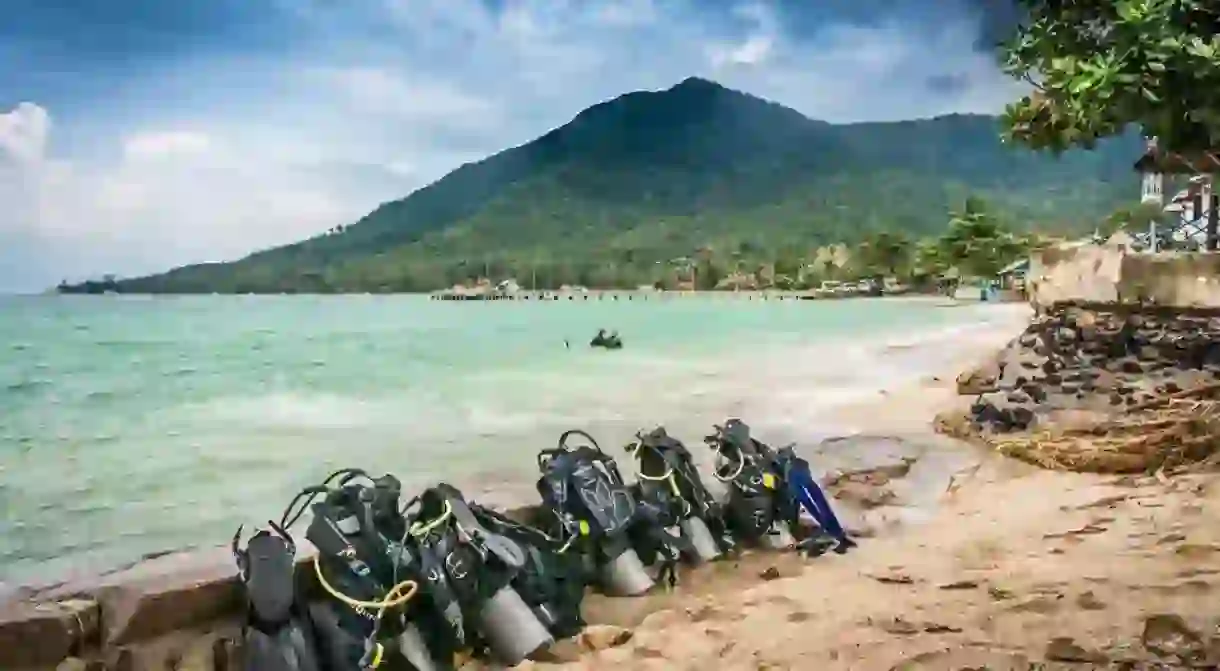The 5 Best Dive Schools in Koh Phangan, Thailand

While nearby Koh Tao has a more storied reputation for scuba training, diving off Koh Phangan can offer a more laid-back experience while leaving plenty of time to explore this scenic, jungle-dense island and its many expansive beaches. So whether you’re first taking the plunge or just in need of a detox after your Full Moon Party extravaganza, check out these excellent dive outfits.
Sail Rock Divers
Shop

Pirate Divers
Shop

A shop with a keen eye for customer service and prioritizing small group sizes, Pirate Divers travels daily to iconic Sail Rock and also runs weekly trips to Ang Thong National Marine Park and other nearby pinnacles. With full offerings of RAID and PADI training courses available, Pirate Divers also prides itself in its highly knowledgeable dive guides, who are both experts at finding the best marine life the area has to offer as well as highly attentive to customer satisfaction.
The Dive Inn
Shop

This efficient shop strikes an excellent balance between laid-back comfort and high-level customer service. While priced slightly higher than its competitors, the quality of training programs is in a league of its own, with patience and friendliness the key features across all members of its staff.
Haad Yao Divers
Shop

The longest-running dive centre on Koh Phangan, Haad Yao has delivered consistent service and quality training since 1997. Its highly international team of instructors create a very social, fun vibe, while management still keeps group sizes small and highlights customer service. Haad Yao is also a member of the locally run Green Fins Thailand organization, contributing to coral reef monitoring initiatives and operating through its commitment as an eco-aware business.
CORE Sea
Shop

For those already sporting a diving licence and eager to venture deeper into their understanding of the marine world, CORE Sea is Koh Phangan’s marine conservation and research centre. Their titular conservation training program typically runs for about two weeks, and trains participants in elements of marine biology and conservation, including robust local fish and coral identification, monitoring and evaluating coral reef ecosystem health, and work on artificial coral structures and nurseries.













